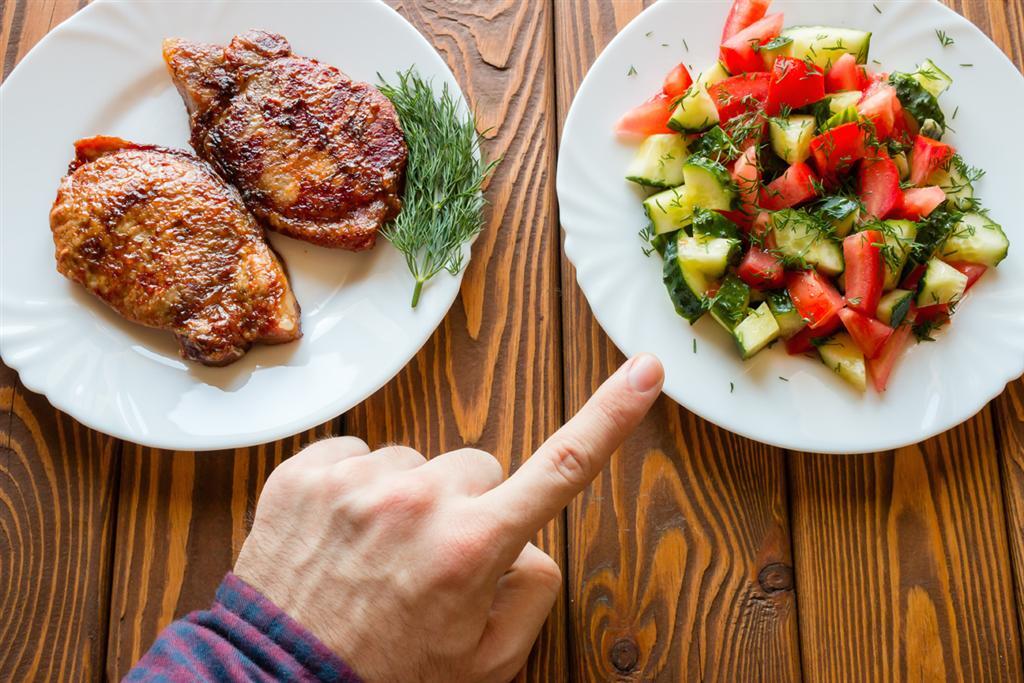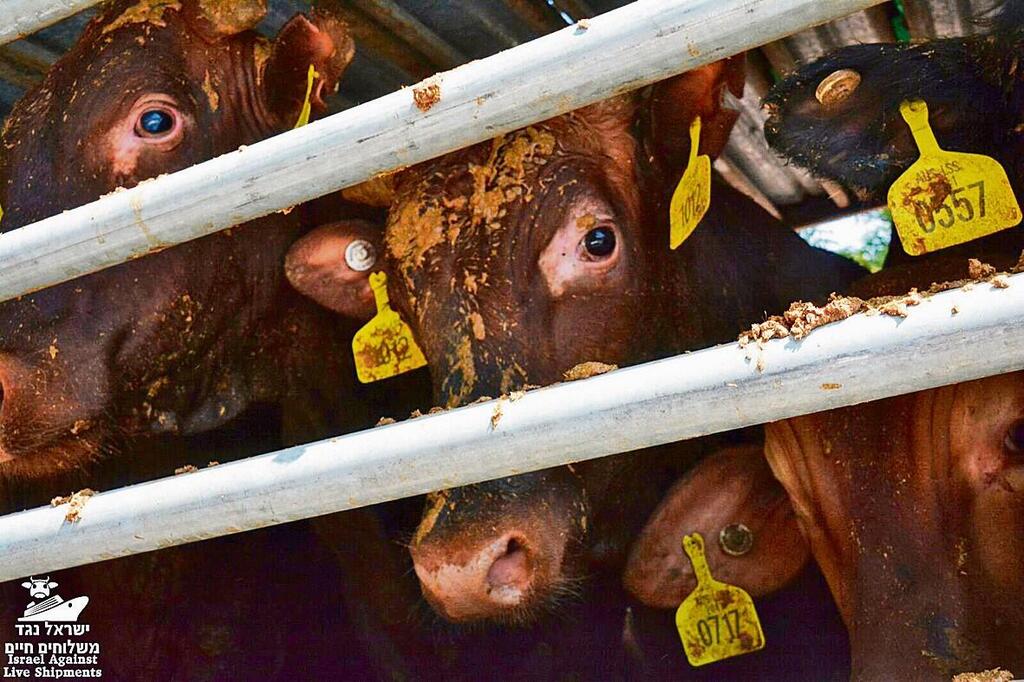The love affair between the Stav household and the realm of vegetarianism began blossoming nine years ago, when their bright-eyed 4-year-old Tahel posed an innocent question during a sacred Shabbat feast. With a quizzical look, she asked her mother, Batya, whether it was permissible to take the life of an animal just to use its body.
Read more:
Batya, whose soul had always been drawn to this philosophy, replied with a resolute "no". From that moment on, the family embarked on a meat-free journey. As the older children eagerly joined in, Batya decided to bid farewell to all meat dishes in her kitchen - except for the occasional fishy feast. However, even the oceanic offerings did not appeal to her personal palate.
Rabbi Avraham Stav chuckles, "I don't fancy labeling myself a 'Jewish-vegetarian,' it sounds a tad patronizing." Nevertheless, he strives to minimize his meat consumption considerably. He limits it to only special occasions, like Shabbat and holidays, and when he visits his folks.
Meet Rabbi Avraham Stav, a 35-year-old family man and proud father of five, who recently obtained his doctorate in philosophy from Ben-Gurion University. He is considered one of the most active and talented young writers in the national-religious sector.
Though he doesn't like to label himself as a "Jewish-vegetarian" because he finds it somewhat patronizing, Rabbi Stav has made a conscious effort to drastically reduce his meat intake. He reserves eating meat for special occasions like Shabbat and holidays, or when he's visiting his parents.
While vegetarianism and veganism have gained popularity among Halacha observers, some still argue that according to Halacha, eating meat and drinking wine on Shabbat and holidays is mandatory.
However, Rabbi Avraham Stav challenges this notion in his latest book, "Jewish Vegetarianism" (published by Yedioth Books). In the book, the rabbi offers a nuanced perspective on Judaism's relationship with meat consumption throughout the generations, proving that it is a much more complex issue than many believe.
"In the book of Genesis, Noah was granted permission to eat meat. Later on, when the Israelites were on their way to the Land of Israel, they too were permitted to consume meat"
According to Rabbi Stav, his book passionately advocates for reducing meat consumption while also providing a platform for those who choose more drastic paths, such as vegetarianism or veganism, to find purpose and support.
Rabbi Stav's book goes beyond just encouraging a reduction in meat consumption, as it also includes a list of allowances for vegans during Passover. This list includes some unconventional items such as soy and peanuts, green beans, and a mixture of beans.
However, the book also contains a principled statement that permits the consumption of real beans when there are no other reasonable food options available. Additionally, Rabbi Stav allows vegans to ease the Ashkenazi custom of avoiding legumes on Passover, giving more flexibility to those who choose to follow a plant-based diet.
Why object to meat eating when the Torah repeatedly permits it?
"The Torah is typically known for its prohibitions rather than its allowances. However, when it comes to meat consumption, the Torah seems to have a perplexing pattern of permission.
"In the book of Genesis, Noah was granted permission to eat meat. Later on, when the Israelites were on their way to the Land of Israel, they too were permitted to consume meat.
"This dual permission has puzzled many scholars, who argue that the permission granted to Noah was situational and limited in scope. Perhaps it was necessary due to the scarcity of food after the flood, or because the people were weak and needed the protein from meat to regain their strength.
"It's important to note that the permission granted to eat meat is not absolute, but rather conditional upon justification."
In light of current nutritional knowledge and practices, Rabbi Stav believes that it's time to re-examine the traditional allowance to eat meat.
"In our modern times, many nutritionists argue that consuming meat of various kinds doesn't necessarily lead to better health, and it's quite feasible to maintain a balanced diet without meat," he explains.
This leads to the question of whether the age-old permission to eat meat is still relevant in today's context.
Would the Torah have preferred if we were all vegetarian?
"The Torah does not promote vegetarianism as a personal identity, but rather as a core value. The Torah does not approve of the meat industry in its current form, with its massive scale and inhumane conditions that cause unprecedented harm to animal welfare.
"Moreover, the Torah sees the act of eating meat as a concession to human weakness. Despite these views, Judaism after the Flood did not adopt a strictly vegetarian diet - not every killing of an animal is considered murder.
"Hence, the book aims to foster a nuanced worldview that recognizes the value of vegetarianism while taking into account the complexity of the issue."
Rabbi Stav presents a compelling argument that Judaism views meat consumption as a choice to be made sparingly. However, this stance presents a challenge as Jews have been yearning for the rebuilding of the Third Temple since the destruction of the Second Temple in 70 AD.
The temple was a place where many animals were sacrificed daily and the priests even consumed part of the meat. Additionally, during Passover, there is a Torah obligation for every individual, except for those who are unclean, to partake in the holiday sacrifice.
What about meat consumption on weekends and holidays?
"Contrary to what some may think, there is actually no obligation for me as a Jew to eat meat on Shabbat or holidays. While it is true that there is a mitzvah to delight in the Shabbat with fine foods, including meat and wine for many, it is not a requirement.
"Similarly, on holidays, the sources do emphasize the importance of rejoicing with meat and wine, but if I don't enjoy or even suffer from eating meat, I am not obligated to do so."




